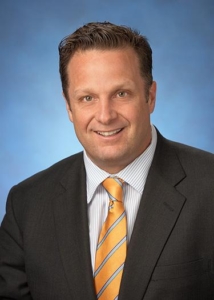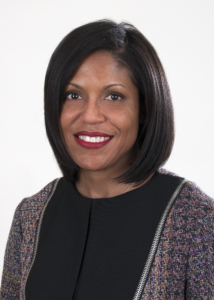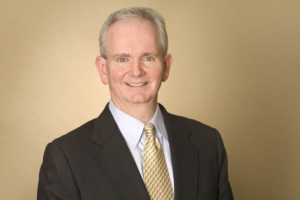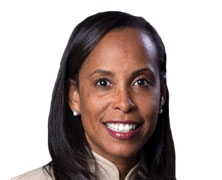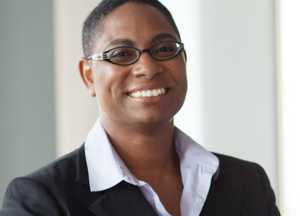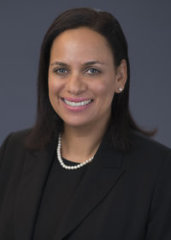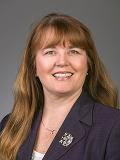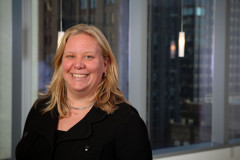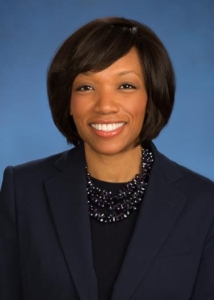 Curiosity and a willingness to say “yes” have been the driving forces behind Stephanie Smith’s successful career in the hypercompetitive Wall Street environment.
Curiosity and a willingness to say “yes” have been the driving forces behind Stephanie Smith’s successful career in the hypercompetitive Wall Street environment.
Smith joined Goldman Sachs in July 1999 at the height of the dot-com boom. Though her background was in marketing, she was drawn in by the interesting work that Goldman was doing in e-commerce and spent five years developing strategy for the business. Then, in 2004, she leveraged the many internal relationships she had formed through networking to pursue a new opportunity in the firm’s Operations Division.
While Operations was not necessarily an expected career change, she was immensely curious about the space. Smith was offered an opportunity to join the Client Onboarding team, which is responsible for creating new accounts for clients across all products traded by the firm. “I was quickly catapulted from being a team member working on projects to leading a team of 20,” she recalls. “I was out of my comfort zone, but loving every minute of it!”
Her next “yes” was to the Credit Operations group. “Again, I had no background in this specific industry but was curious about the product and the business. I realized that even if I didn’t have direct experience, I was highly motivated to learn and excited to dive into the opportunity to try something new,” Smith says. “Ultimately I felt supported by the firm that if it didn’t work out, they would redeploy me. Trying something new was 50% fun and 50% challenge.” She soon rose from her initial regional oversight to managing the global team of over 400 people.
In her current role, Smith is excited to be constantly challenged to learn new regulatory rules, partner with her peers and team to develop implementation strategies and develop ideas that will build operational efficiency in the support of fixed income and derivative products.
She relishes a role that enables her to think strategically about issues such as how the firm should build its technological architecture, what consortiums it should join, and what its response should be to proposed rule changes. “We are working with industry partners and leaders internally on how to scale this business and what technological infrastructures we should put in place to help us in the future.”
She says that many of the current changes are driven by the changing regulatory environment and also because of client demand. “Our clients are looking for more creative ways of generating and preserving revenue, and at Goldman Sachs we continually challenge ourselves to develop solutions that meet their needs.”
Just Say Yes
Smith’s advice, especially for women, is simple. “You have to take a chance and speak up, ask questions and expand your network.” Smith says women have a tendency to opt themselves out – after achieving academic success in school, they tend to withdraw when surrounded by a team of smart people. This manifests itself in staying quiet if you don’t have the perfect answer or know 100 percent about a product or solution.
“I was guilty of opting out early in my career, but by working with mentors over the years I’ve learned that we’re all just trying to figure it out,” Smith says. “The beauty of success is harnessing the power of the team — I bring something to the table, you bring something and collectively we develop an answer.”
And that is the advice she believes young women need to hear as they start their career: to jump in with both feet; take risks; and say yes.
“Even when I didn’t know all the details of what I was asked to do, I trusted my managers and said yes, in spite of the butterflies in my stomach. It wasn’t always easy, but it was always worth it.”
This “yes” mentality, combined with her curiosity, is what has led Smith up the ladder.
Along the way, she has learned valuable lessons about perspective and pivoting. Each success and setback is part of a broader journey and should not be evaluated in isolation.
Smith acknowledges she had roles in which she performed well but didn’t feel sufficiently motivated. However, she notes, “I learned something through every experience that led me to my next step, whether it was because I met new and interesting people or learned about a new line of business.”
She says she is most proud of her opportunity and ability to change course in her career. Smith remarks, “I joined the firm in the Securities Division headed in one path, then pivoted to Operations where I was heading down the path of being a strategic individual contributor, and then I pivoted again to management. That’s the beauty of Goldman Sachs — it doesn’t matter where you start, you have the ability to remake yourself multiple times throughout your career.”
Mentoring Emerging Leaders
Smith is active in the firm’s Emerging Leaders Program, which identifies up-and-coming diverse leaders within the firm and offers a network where they can receive coaching and establish informal and formal mentoring relationships.
While she is now able to speak about successfully navigating the firm, she didn’t arrive understanding the rules of the road, some of which she attributes to her background as a first generation immigrant.
“I didn’t know what to expect or how to navigate Wall Street,” she says, adding that although she worked extremely hard during her first couple of years and achieved success, her exposure and impact were limited because she kept her head down. “I assumed that if I worked hard, someone would recognize me, but it wasn’t until one of my managers challenged me to be more vocal and develop my network that my career took off.”
Smith is sure to share her advice across the spectrum of diversity found at Goldman Sachs, be it racial, gender, sexual orientation or cultural. “By celebrating our diversity, we create a more cohesive firm that makes us more effective in our day jobs.”
Goldman Sachs also values diversity outside of work. The firm sponsors and partners with several successful organizations that promote the development of diverse talent. Smith currently serves on the board of one such organization, Council of Urban Professionals (CUP). Founded in 2007, this non-profit’s mission is to connect, empower and mobilize the next generation of diverse business and civic leaders in financial services, legal, media, entertainment and both non-profit and public sectors.
“I love CUP because it allows us to supplement our leadership development as a firm. We can create networks and informal connections between Goldman Sachs professionals and our peers in the industry.”
Outside of work, Smith spends time with her husband and two sons, whom she says keep her grounded and focused.

